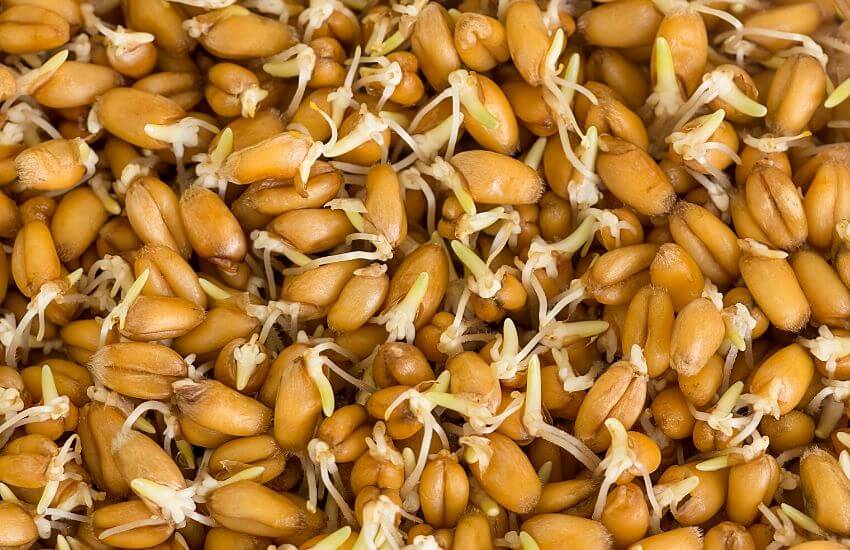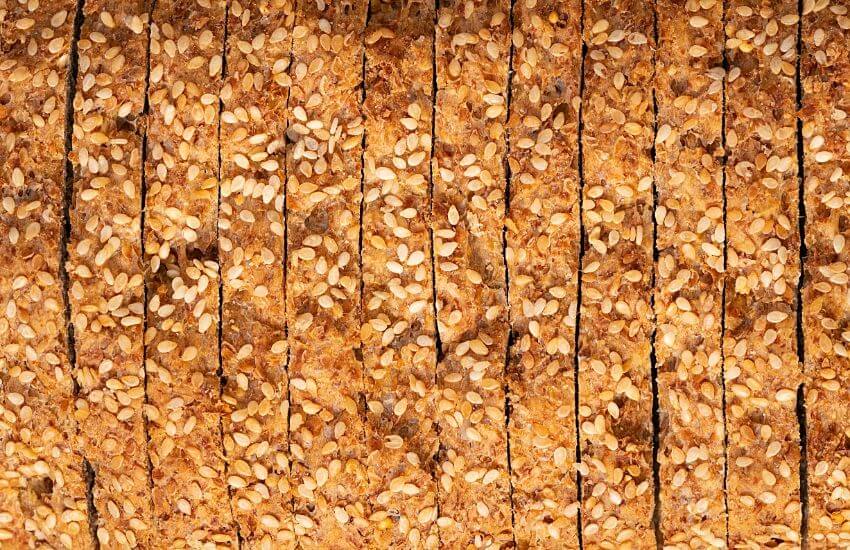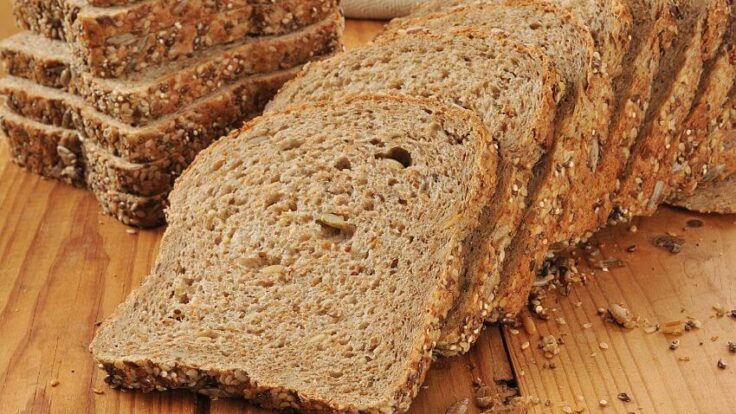Nutritionists agree. Whole grain bread is better for you than plain white bread. Wheat bread, for example, is more nutritious than white bread. It retains bran and germ, parts the refining process destroys.
But what about sprouted grain bread?
Sprouted bread gets a lot of press in the nutrition world, and for good reason. It has no sugar, preservatives, or artificial ingredients. To learn more about this healthy alternative, keep reading.
DISCLOSURE – This post contains affiliate links. If you buy something through one of the links, I will earn a commission at no extra cost to you. Read my full disclosure here.
Sprouted Bread: The New “It” Food
Sprouted grain bread contains whole grains and seeds sprouted (germinated) before baking. U.S. News and World Report calls sprouted bread the new “it” food.
Sprouted bread is trendy, but it’s more than a health food fad. Like yogurt, granola, and hummus, sprouted grains were once considered fringe fare.
Once found only in health food stores, sprouted bread is available in supermarkets. It has become a mainstream alternative to wheat bread.
How Do Whole Grains Sprout?
Sprouting involves soaking whole grains in water until they sprouted. Monitors watch the water, temperature, and sprouting time in a controlled environment.
After the grains sprout, the monitors drain and mix the grains for the grinding process. The ground meal made has more nutrients than refined flour … and fewer sugars and fats.
Sprouted bread often contains wheat grains. Some breads contain barley, lentils, millet, oats, or soy. Breads made with several grains and seeds are a rich source of protein. They also contain fiber, vitamins, and minerals.

Sprouted Grains in the Bible
Sprouted bread is trendy right now, but the concept is not new. The Bible mentions grain and seeds in Ezekiel 4:9 and Genesis 1:29. Food for Life uses biblical ingredients in Ezekiel Bread and Genesis Bread.
Some people eat grain-free for health reasons. They may be allergic to compounds found in wheat and related grains, like barley and rye. Or they may eat a low-carb ketogenic diet. But for many people, bread is a source of daily nourishment.
As a dietary mainstay, bread is a primary metaphor for life and sustenance. There are many references to bread and grain in the Bible. In fact, Jesus called Himself the “bread of life” (John 6:35).
Grain does contain unhealthy proteins (gluten, lectins) and nutrient-inhibiting compounds (phytic acid). So bread is healthier when something neutralizes these components.
In biblical times, neutralizing the unhealthy parts happened in natural ways. People soaked, sprouted, and fermented grains before use.
Sprouting happened from storage methods that left grain exposed to warmth and moisture. Whether it was intentional, the end result was healthy, sprouted bread.
Health Benefits of Sprouted Grains
Scientists have conducted several studies on the health benefits of sprouted grains. Some known benefits include:
- better digestion
- better nutrient absorption
- more antioxidants, and
- fewer allergens
A report published by the Whole Grains Council shows they may also help:
- lower blood pressure
- reduce cholesterol
- fight diabetes, and
- improve heart health

Now It’s Your Turn
Thank you for reading my post. Now it’s YOUR turn to chime in. Do you eat sprouted grain bread? Will you try it after reading this post?
Let’s fill the comments with friendly conversation. Scroll down to leave a reply, ask a question, or just say hello. And if you liked this post, please give it a share.
Blessings, Annette
NOTE – You are reading “Sprouted Grain Bread: A Healthy Bread Alternative.” A version of this post appeared on Blogger in September 2015. It has been updated for the Savoring Home community.
Photo Sources
- Getty Images | Canva | License
Reference Sources
